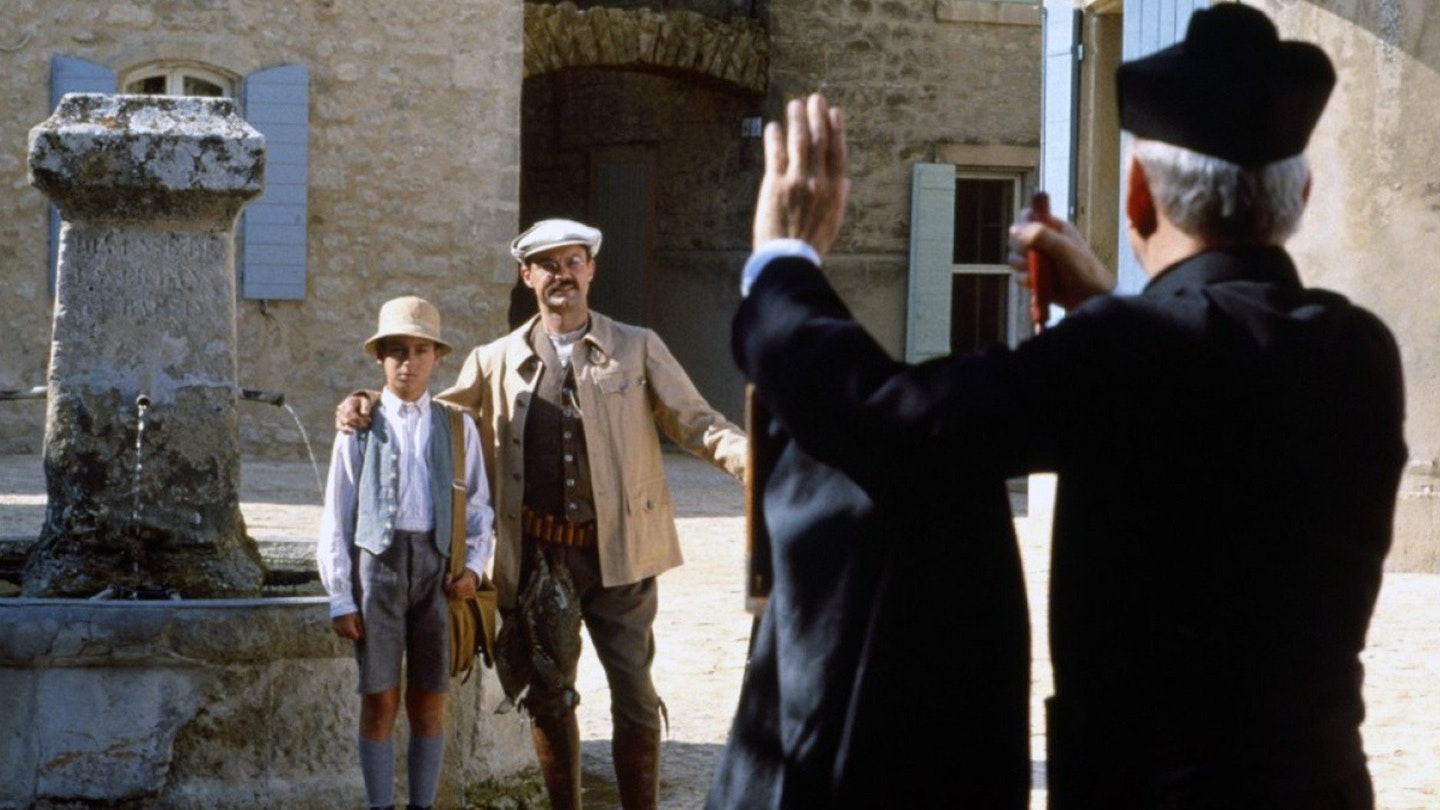The makers and distributors of My Father's Glory are being admirably frank and unashamed about trading off the success of Jean De Florette and Manon Des Sources in promoting this film which, like those two, is based on material by Marcel Pagnol and has a second half, My Mother's Castle, on the way. Fair enough really, as a lot of this one is set in the hill country of Provence and there is indeed even a little conversation about water and a hidden spring.
Joseph (Caubere), a good-natured anti-clergy young schoolteacher marries pretty seamstress Augustine (Roussel). They have two children, the eldest being Marcel (Martin), who learns to read by the age three and whose childhood recollections supply the film's content. Augustine's sister, Aunt Rose (Liotard), in danger of becoming an old maid, marries fat and jolly Uncle Jules (Pain) and the two families become inseparable. When Marcel is 11, the whole family, who live in Marseilles, take a remote house in Provence for the summer where, as well as learning to hunt and falling in love with the countryside, Marcel strikes up a friendship with country lad Lili (Molinas).
My Father's Glory is obviously made with love and care, is well-acted and very, very pretty - in fact everything is so perfect that nothing seems quite real, while the story, to quote the accompanying production notes, is "charming and sentimental", indeed "an evocation of unblemished happiness". One has nothing against charm and sentimentality, or, indeed, happiness, but it's the lack of blemish that is the problem here. Never can there have been a more loving family living a more contented and modest life and one simply longs for something to happen. The only "real" character is young Molinas' matter-of-fact, Huck Finn-type poacher; by contrast Marcel looks like a sort of plastic child plucked from the portals of the Avenue Foch, and is rather irritating where he's obviously meant to be adorable.

